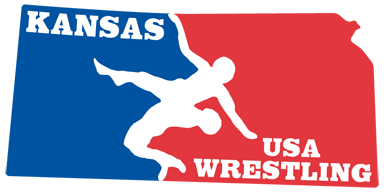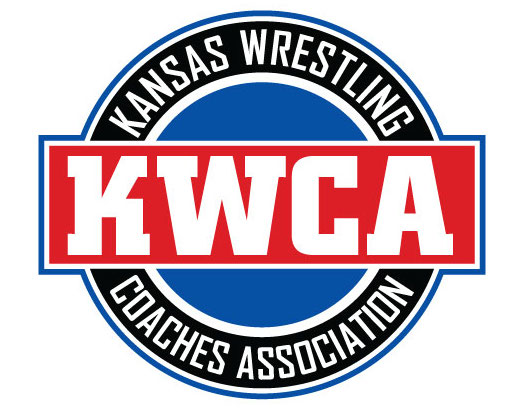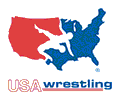WICHITA EAGLE ARTICLE 18 April 2010
Public-private classification dilemma a common issue among high school associations
Other states have developed methods to compensate for private schools' successes; Kansas officials have spoken with Missouri about its system.
Read more:
http://www.kansas.com/2010/04/18/1273988/public-private-dilemma-a-common.html#ixzz0lUFmSN4pFairness in athletic competition between public and private schools has been talked about for years in Kansas high school circles. Two proposals last month seeking to make private schools compete in higher or separate classifications were warning flares to the rest of the state.
The board of directors for the Kansas State High School Activities Association, the state's governing body for high school sports, will meet in Topeka late this week to talk about — but probably not act on — the ideas.
The association's executive board, meanwhile, has already investigated a third option — multiplying private school's enrollment by a pre-determined figure to determine classifications.
Change may be years down the road, but the talk is getting serious.
"Our intent is to get the discussion going on how do we resolve the issue that a lot of members have with the perception, right or wrong, that private schools have an advantage," said Clay Center principal Mike Adams, a board of directors member who helped draft one proposal to move the 26 private schools up a class. Another is splitting private schools into their own postseason division.
The multiplier system
In March, executive director Kerwin Urhahn of the Missouri State High School Activities Association talked to the KSHSAA's executive board about the private-public school issue.
"We recognized that we have people that have gone through the process before in a neighboring state," said Bill Faflick, the City League director and executive board member. "We wanted him to come in and share some of his insights as to what they did."
Urhahn spoke for more than an hour and offered some of the hurdles Missouri faced, as well as school response after the 1.35 multiplier was put in place.
"I think there could be some legitimacy to the multiplier," said DeSoto principal David Morford, who is on the executive board and helped write the proposal to split private schools into their own classification.
Bishop Carroll athletic director Larry Dostert doesn't want to see change to the current system but sees the multiplier as a better option.
"If it was forced on us, the multiplier I could live with. I think we can compete at the 6A level," Dostert said. "I think it would be extremely unfair to eliminate us from postseason with the public schools."
Missouri adopted the 1.35 multiplier in 2002 primarily because many public schools felt they weren't on an even playing field with private schools. In the previous 10 years before the multiplier, private schools won 33.2 percent of 581 titles. Private schools make up 12 percent of the association's membership.
"What it did was (it) shifted non-public schools into larger classes," Urhahn said.
For large private schools such as Christian Brothers College High outside St. Louis, little has changed. But for Helias High in Jefferson City, change has been drastic.
"We had 32 state championships (in multiple sports) through the 1980s and '90s," said Chris Hentges, Helias' football coach. "We had more than any team in the state. When the multiplier came in the early 2000s, we've only won one state championship. There's no school that has been affected the way that we have."
The multiplier frustrates Helias president Didier Aur, especially because in baseball, softball and volleyball, Helias plays against schools three times its size.
"It's something that's unfair," Aur said."... Have we accepted it? Grudgingly, yes. There's absolutely nothing we can do about it."
Under this year's enrollment figures, a 1.35 multiplier in Kansas would move Carroll from Class 5A to 6A and Collegiate and Independent from 3A to 4A, but Kapaun Mount Carmel would remain in 5A and Wichita Trinity would remain in 4A.
A good option?
Not all think the multiplier is the answer, including Douglass athletic director Scott Dunham, who prefers separate classes for private schools.
"I think there are impacts and effects with it that I don't know that we could see immediately," Dunham said. "I think with the multiplier some of the issues and concerns that they have in terms of fairness and equity might still be there."
The multiplier system doesn't necessarily do everything its proponents hope for.
A multiplier system didn't change the number of private-school champions in Missouri. Private schools won 33.2 percent of the state titles in the five years before the multiplier was enacted, 33 percent in the five years after.
Since the change, the issues between private and public schools have lessened, Urhahn said. He's been told by a committee made up of members of private and public schools that the issue isn't really discussed anymore.
"It's what I call a cosmetic fix," said Ralph Swearngin, executive director of the Georgia High School Association, about a multiplier system. "A lot of people like that something has been done, but when you analyze, you realize there's not much substance there."
That was true in Georgia. Georgia went to a multiplier system in 2000, but dropped it before the 2006-07 school year because the same schools continued to win.
Faflick, who oversees a league with seven public schools and two parochial high schools in the City League, thinks all KSHSAA schools should be treated the same. He said a multiplier doesn't address all factors.
"Do you put in a multiplier for programs where the coaches have had longevity for more than 10 years? Do you put in a multiplier for schools that have no parent participation?" Faflick said. "Private and public is just one factor. Do you put in a multiplier for urban vs. rural? I don't know why that one issue is one that's being identified. I think it's much more complex than just public/private.... All of those things impact winning championships."
Headed for court?
If the KSHSAA and its member schools vote to change the bylaws regarding private schools, the association could face a lawsuit. The Missouri and Illinois associations were sued shortly after going to a multiplier.
Missouri's 1.35 multiplier was initially arbitrary, but the MSHSAA won its case because it found that 35 percent of students in public schools didn't participate in extracurricular activities. Private schools typically are near 100-percent participation because schools insist on it.
Thirty-nine private schools immediately sued the Illinois High School Association in 2005 when a 1.65 multiplier was enacted by its board of directors. The association asked member schools to approve it, which they did by a 5-1 margin.
Gary Musselman, the KSHSAA's executive director, said fear of a lawsuit regarding private school classification won't halt possible change.
"The guiding thought has to be doing the right thing and what the majority of the membership supports, whatever that might do," Musselman said. "If lawsuits arise then you have to deal with them. Nobody wants to be spending time and money on lawsuits when you can be spending them on programs that you're conducting for your students."
Read more:
http://www.kansas.com/2010/04/18/1273988/public-private-dilemma-a-common.html#ixzz0lUCygvzu






